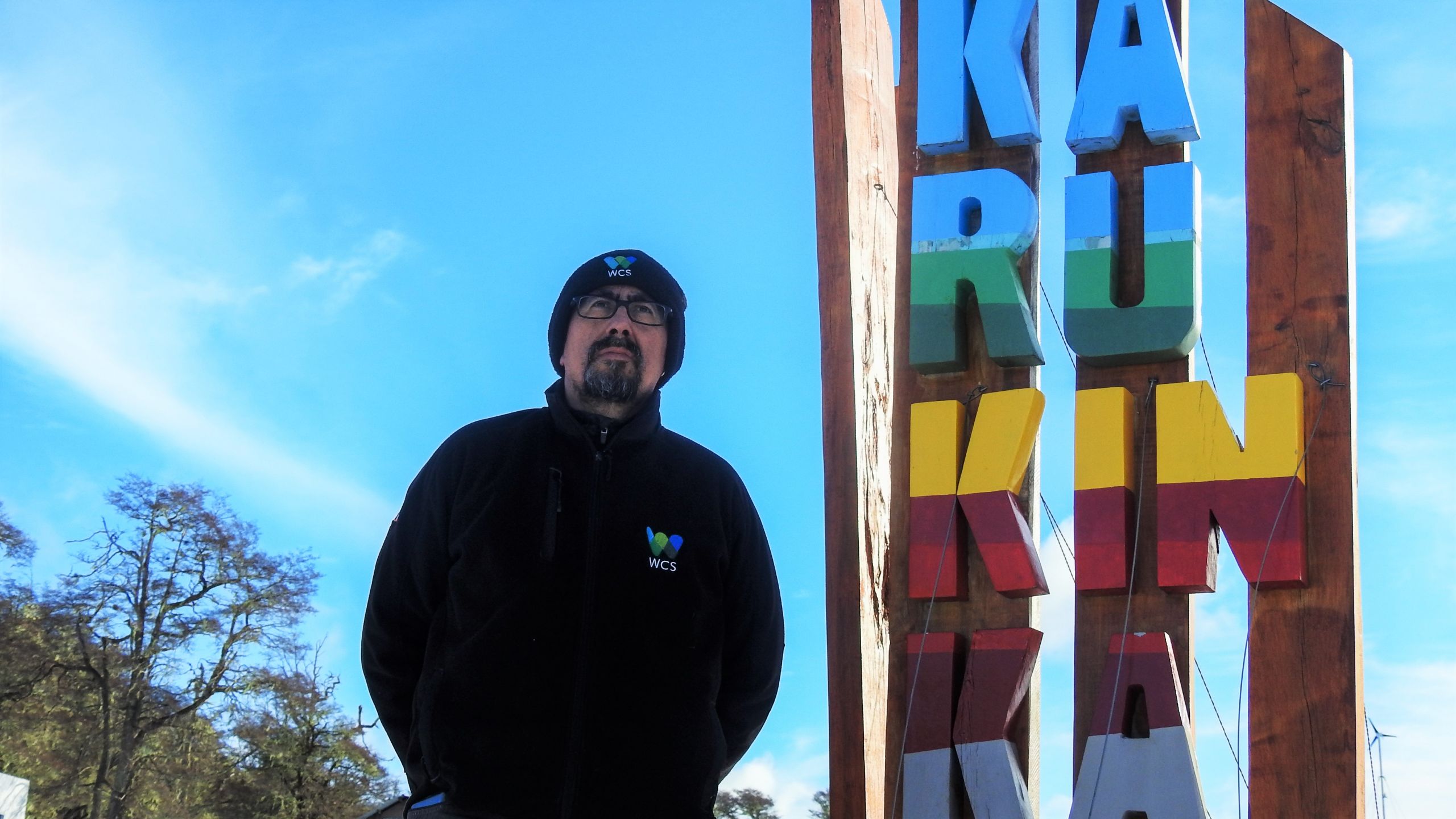
Mauricio Chacon Hernandez in Karukinka Natural Park. Photo credit: ©Rodrigo Munzenmayer Muñoz/WCS
Since January 2005, Mauricio Chacon Hernandez has been working in Karukinka Natural Park, a private nature reserve operated by the Wildlife Conservation Society located in the Chilean portion of the Isla Grande de Tierra del Fuego. He began as a wildlife ranger and now leads logistics and maintenance at the park. He sat down with his WCS colleague Rodrigo Munzenmayer to discuss his work for World Ranger Day.
Q: How and why did you decide to become a Wildlife ranger?
Mauricio Chacon Hernandez (MCH): Actually, I did not decide. This job found me. In the beginning, I thought of working for the season. But I decided to stay because I really loved the job and, of course, the place. Also, I was given the opportunity to stay.
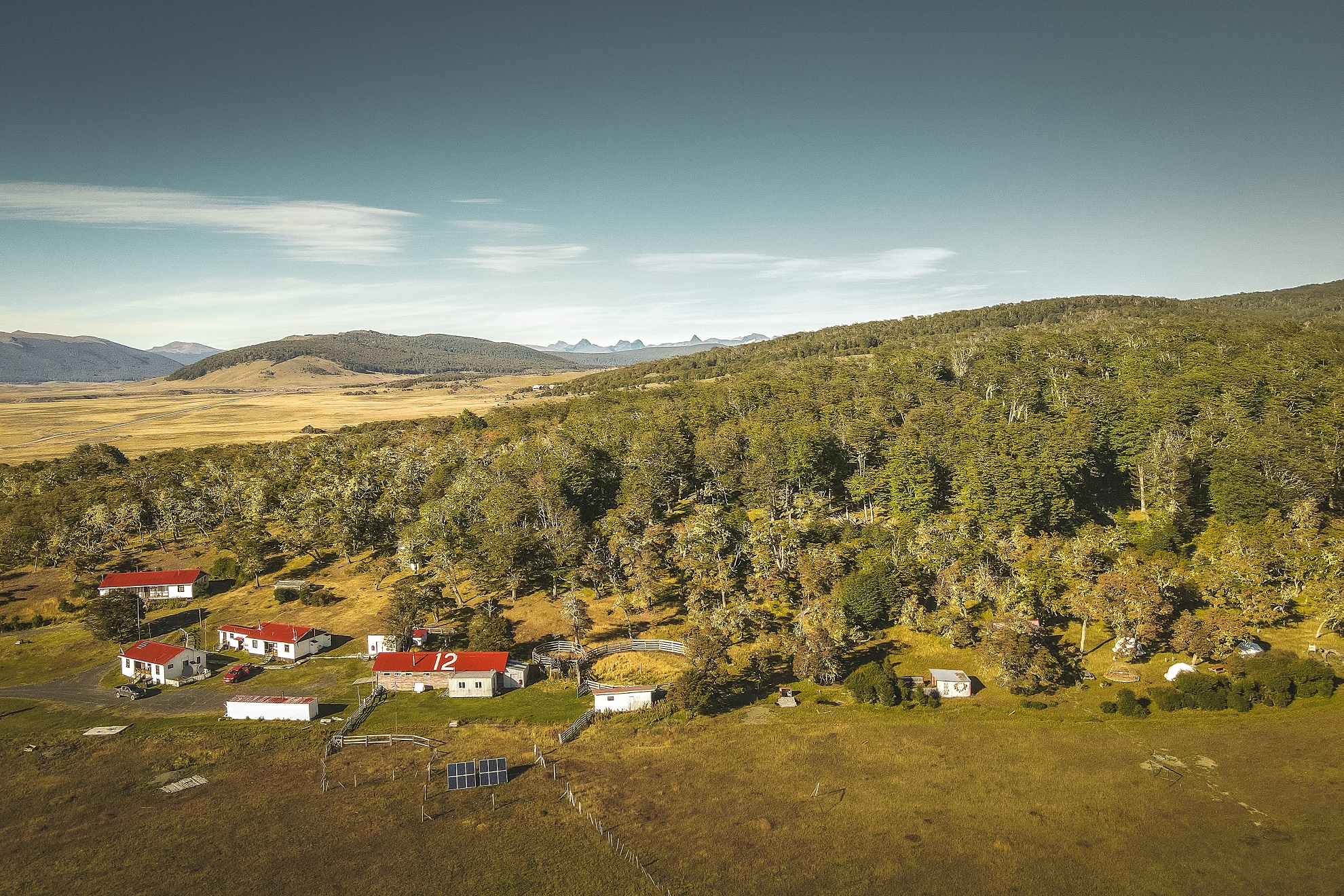
Forests and peatlands surround WCS headquarters I Karukinka. Photo credit: ©Eduardo Hernandez
Q: Did you have a lot of experiences with animals or nature as a young person?
MCH: I did. I was lucky to be raised in Estancia Cameron, which is a cattle-breeding farm next to Karukinka park. As a young person, I was always close to nature and native animals. By the time I came to Karukinka to be a ranger in 2005, it was also an opportunity to come back to my homeland because at that time I was living in Punta Arenas. It made me realize how much I missed Tierra del Fuego.
Q: Who has inspired or mentored you?
MCH: My inspiration is my family. I have a little kid named Santiago and he sees me as a hero for the job I do. My wife, Francisca, whom I was lucky to meet doing this job together in 2010, is also an inspiration to keep being a ranger. I do this job so they—and especially Santiago— will enjoy the landscapes we protect in the most pristine way possible. My inspiration is based on the work that I learned to do. It is something that will stay with me forever.
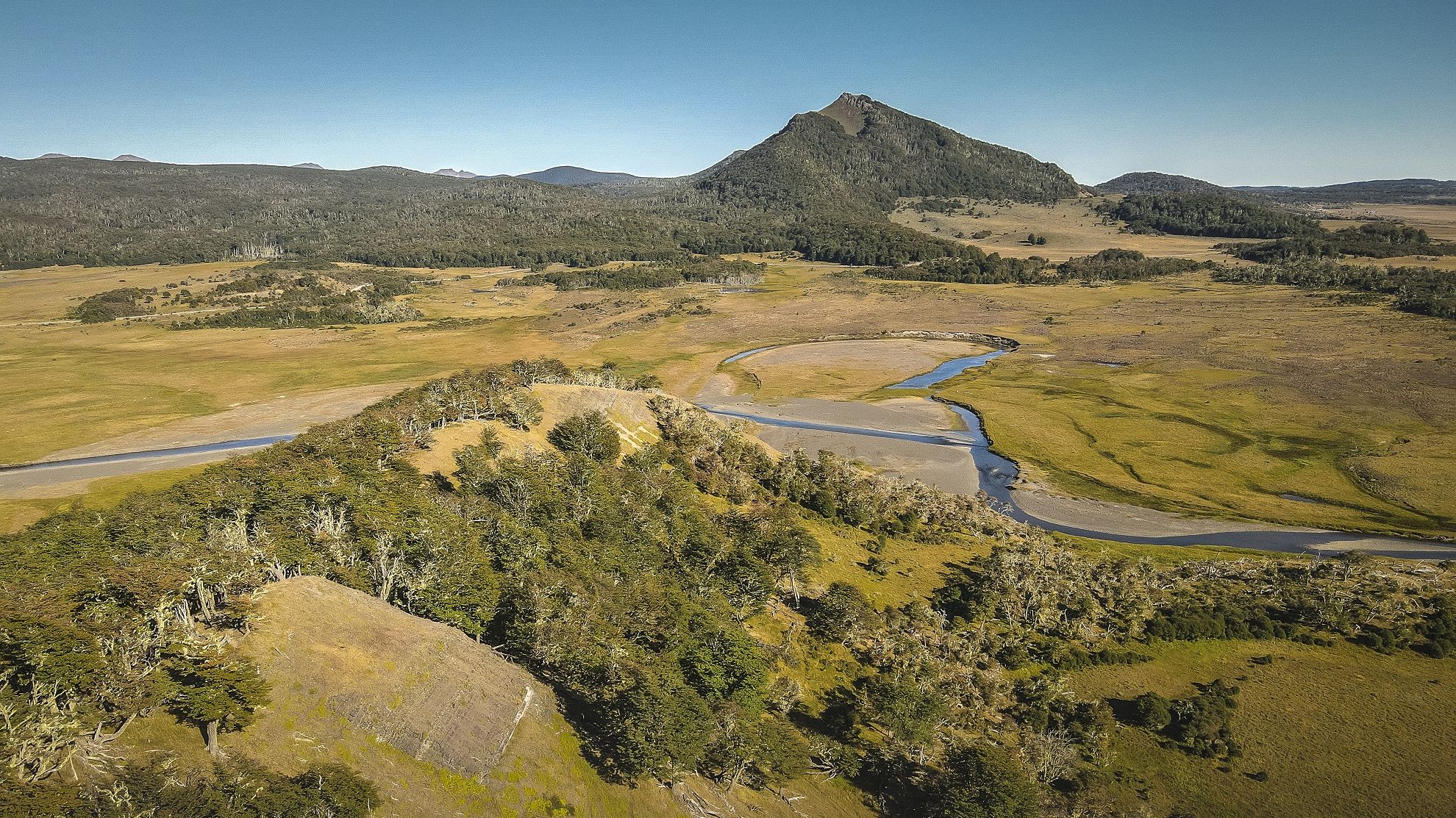
Aerial view of Karukinka Natural Park. Photo credit: ©Eduardo Hernandez
Q: What do you like most about your job?
MCH: One of the things I like the most is that I get to be in places other people cannot go, or where it is difficult for them to be. I am lucky to say that my office has 300,000 hectares. I like constructing trails, monitoring fauna, working with wood to make signs, and repairing everything in our shelter. All those activities help us do our work and spread the word of conservation to our visitors. At the end of the day, I feel rewarded.
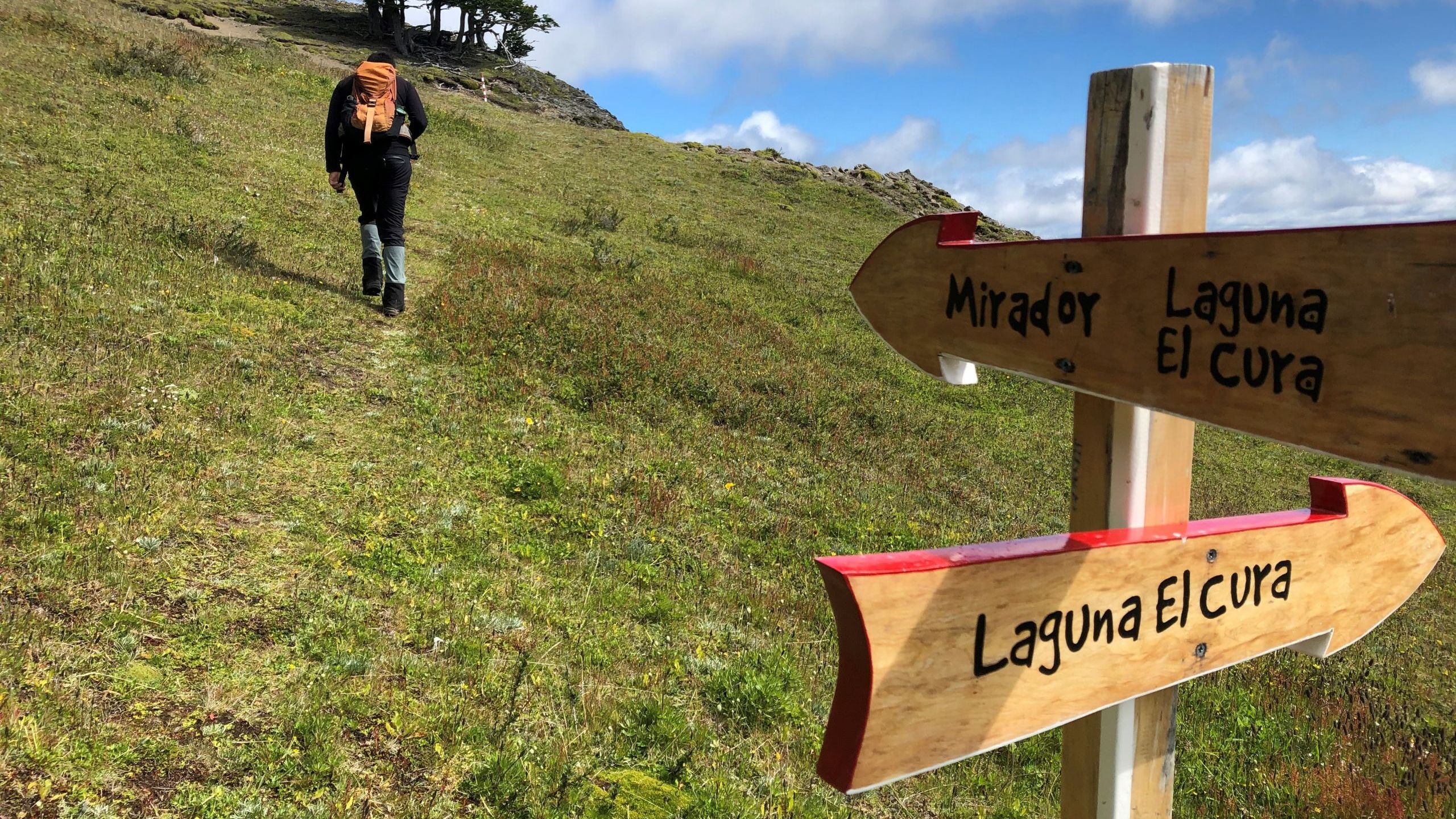
Hiking trails inaside Karukinka, with signals designed and built by park rangers. Photo credit: Melissa Carmody/WCS
Q: What is most challenging about your job?
MCH: I think it is to miss time with my family. Sometimes I cannot be with my family on their important dates like birthdays. The weather gets rough sometimes and it becomes challenging to be outside doing research or monitoring wildlife and sometimes you might have accidents and have no one but your workmates to help. The closest medical centers are far away from the park so you need to concentrate on what you are doing and take care of yourself and your colleagues.
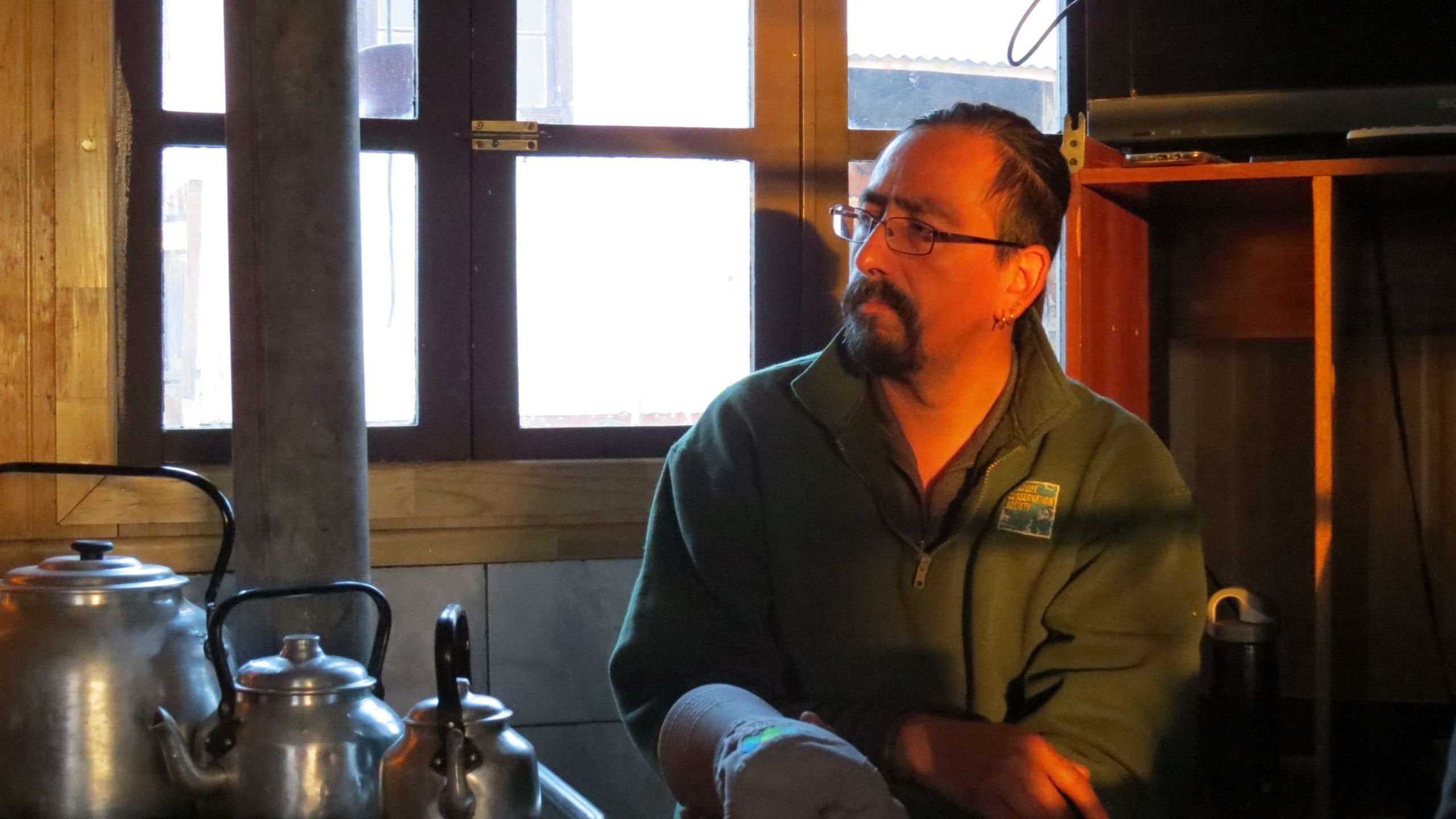
Mauricio Chacon Hernandez in the park rangers kitchen in Karukinka. Photo credit: ©WCS
Q: What do you think people should know about the work of rangers that they may not be aware of?
MCH: The importance of the work we do. The importance of conservation. Specifically, in Tierra del Fuego, it is important that people know what is threatening this special area and what can we do to help the forest, the Culpeo fox, rivers and lakes, mountains, peat bogs, and so on. People are not aware of why conservation matters. It is a long-term job that is not only important to us but also for future generations so they can appreciate the beauty of Karukinka, Tierra del Fuego, and other wild places. Nature does not depend just on rangers. It is a duty for all of us to protect it and keep it healthy.
